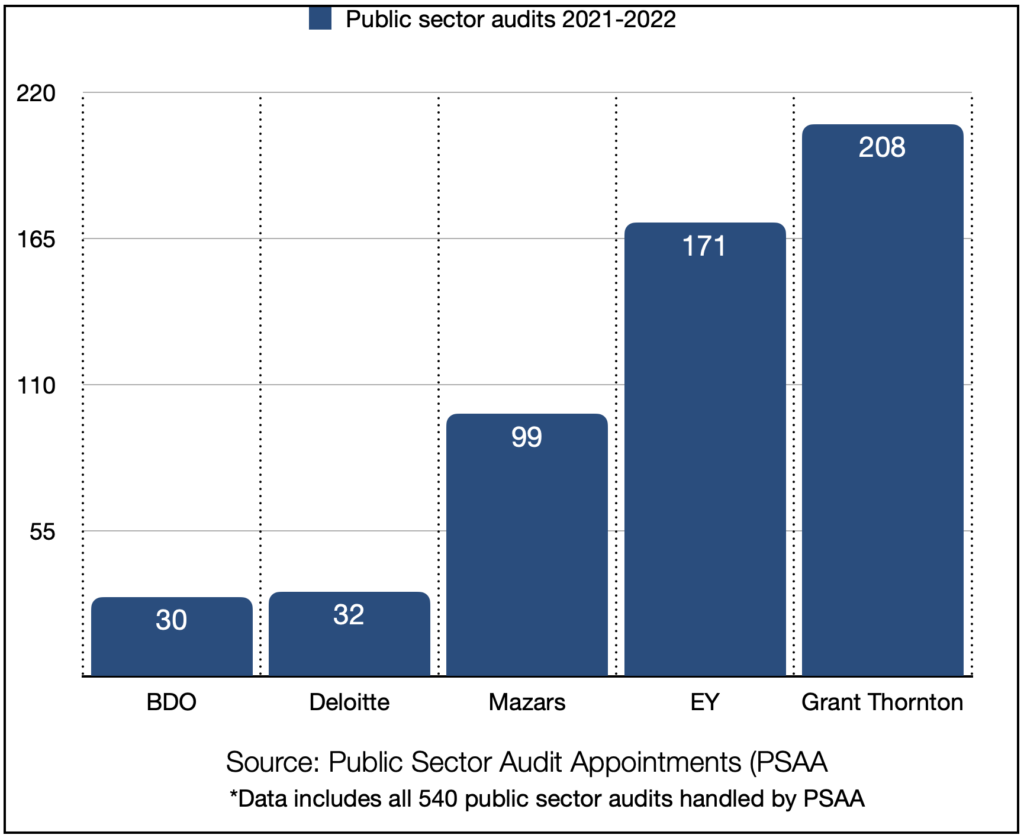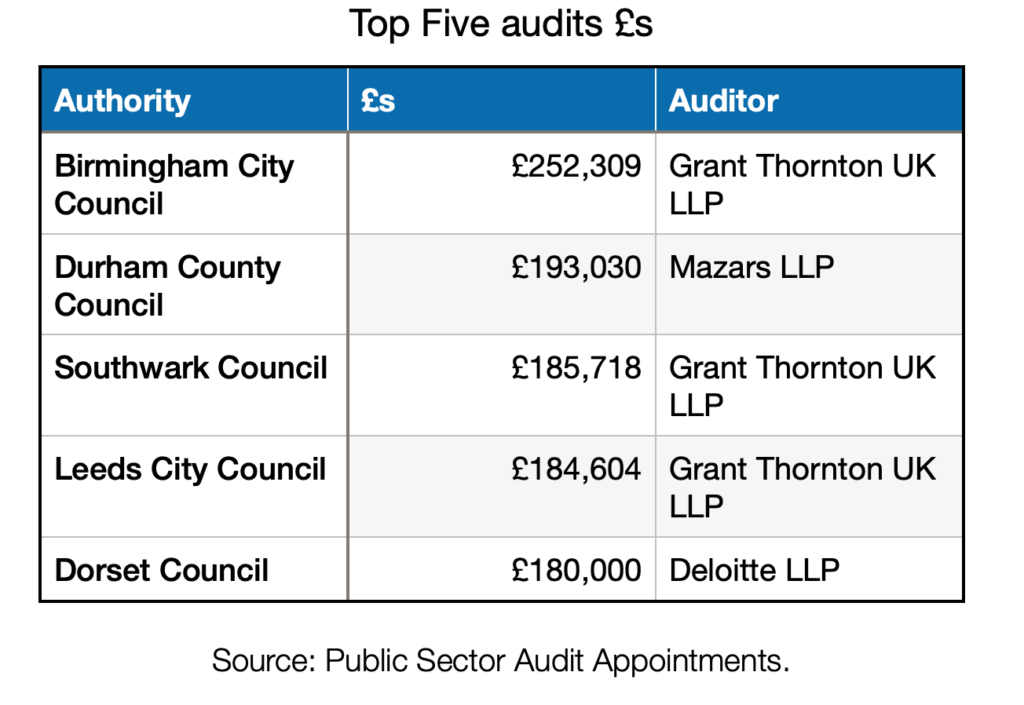
Members on the public accounts committee say the audit market is at risk of collapse while the system is close to “breaking point”.
Audit of councils has long been a source of worry among experts and observers but MPs signals the situation is close to intolerable. A report from the House of Commons public accounts committee (PAC) casts doubt on the integrity of the local government audit market, the ability of the current system to deliver audit on time and whether new arrangements will deliver “leadership”.
Looming large from the PAC’s remarks is a warning: “Without urgent action from government, the audit system for local authorities in England and Wales may soon reach breaking point,” the PAC report says.
Local government audit has been contentious since the abolition of the Audit Commission was first announced in 2010 by the then communities secretary Eric Pickles after David Cameron was elected prime minister in the same year.
16 September 2021
London Stock Exchange or ONLINE
13th Local Authority Treasurers’ Investment Forum
Room151’s flagship annual conference. Free attendance for local government treasurers and section 151 officers.
Lead sponsor CCLA
Public sector treasurers can register here
Completed in 2015, the reform ushered into existance Public Sector Audit Appointments (PSAA) to procure audits for councils across the country. Critical to the change was the overhauling of a system that once both combined audit teams from both the public and private sectors to one which involved only private audit firms bidding for blocks of work.
“Back on track”
Ever since worry has never been far away. There has been ongoing concern about the quality of audit, its focus on issues that seem unlikely priorities for the public sector, and the small number of firms able to service the needs of councils.
There have been efforts to address criticism. The Financial Reporting Council (FRC) has made efforts to improve the process; the Kingman Review in 2018 proposed structural reforms of oversight; and the Redmond Review last year advised reorganisation of supervision, a review of the fee structure and sanctions for auditors who fall short of delivering on quality.
Despite all of this the PAC has delivered more damning criticism and urgent demands. Following on from a National Audit Office (NAO) report earlier this year, the PAC highlights the fact only 45% of councils published their accounts on time for 2019-20, despite extended deadlines. The committee calls on the government “as a matter of urgency” to come up with a plan to force audit “back on track”.
The PAC adds that there is concern about the high risk of collapse for the audit market and once again, the PAC wants to know what contingency plans the government may have.
It also notes councils have become increasingly unattractive as clients and it wants government to work with the regulator and accountancy institutes to “accelerate” qualification of new auditors and “build attractive career paths” to bolster audit firms.
There is also doubt on the committee that new oversight arrangements for audit will work (they worry it remains split between the FRC managing quality and content and the PSAA, procuring audit appointments, despite recommendations that the work should be brought together under one roof). Lastly, the PAC demand to see audit recalibrated to focus on areas of “greatest risk and concern to citizens.” Some of the work currently undertaken is “disproportionate” to the risk facing councils, it says.
The PAC reserves most of its ire for the department for communities and local government (MHCLG), which it says has become “increasingly complacent” as the local government audit market came to depend on only eight firms, two of which dominate 70% of the work.
The problem is urgent, the committee says, especially after Covid-19. “If local authorities are to effectively recover from the pandemic, it is critical that citizens have the necessary assurance that their finances are in order and being managed in the correct manner.”
In March the National Audit Office (NAO) delivered its own report on local government audit after the pandemic. It found many issues. Those problems included insufficient auditors with the right qualifications, as well as a lack of skills and experience on council finance teams. The use of International Financial Reporting Standards, plus pressure from regulators, has caused increased workloads, especially on asset and pension valuations. Much of this has combined to make local government audit a much less attractive place to work than the private sector.
Echoes
Observers welcome this week’s PAC intervention. Alison Ring, public sector director at the ICAEW, agrees measures were needed to head off a potential crisis. She also praises proposals for a new oversight body to stand in until a new regulator, ARGA, is constituted in 2023.
“This report echoes many of our concerns about local financial reporting and audit in England,” says Ring.
Meanwhile, there are doubts the PAC has hit every issue critical to the future of audit. Stephen Sheen, an independent financial reporting consultant and a regular writer for Room151, says the report missed a critical element: whether the model for audit provision should be 100% private sector provision.
“I don’t think higher fees and a bit more training will be enough to secure the model,” says Sheen. “The firms had functioning local audit practices transferred to them on the dissolution of the Audit Commission and have been unable to retain these teams, let alone consolidate and strengthen them so that they can continue into the future.”
He adds the private sector firms are in a powerful position despite accusations of underperformance. “A public sector capability is needed to offset this imbalance of power,” Sheen says.
There is an acknowledgment even from PSAA that work needs to be done. In a dispolmatic statement welcoming the PAC report, Tony Crawley, PSAA’s chief executive, says he and has team have been consulting on a new prospectus and engaging with audit firms. But he suggested the problems would not be resolved through procurement alone saying there are “many other factor which will influence the speed with which a more stable and resilient system can be secured.”
The audit firms seem reconciled to change. Grant Thornton—one of the major firms involved in local government audit, and current auditor to Birmingham City Council, the largest audit fee on PSAA’s register at £252,000—issued a statement
Much of what the PAC wants will hinge on a new regulator settling in to its work looking after public sector audit. And that is still some way off. Until then, the system is likely to continue showing signs of crisis.
—————
FREE monthly newsletters
Subscribe to Room151 Newsletters
Room151 Linkedin Community
Join here
Monthly Online Treasury Briefing
Sign up here with a .gov.uk email address
Room151 Webinars
Visit the Room151 channel















